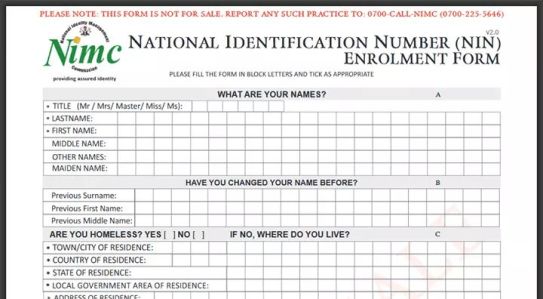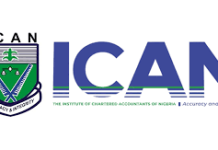- Data protection law criteria have not been met – NIMC
- Three million NINs registered in one month
The World Bank says it was expecting to receive the presidential assent on the Financing Agreement before disbursing the $430m fund for Nigeria’s Digital Identification for Development Project.
In an emailed response to enquiries made by Biz Watch Nigeria, the Senior External Affairs Officer, Nigerian Office of the World Bank, Mansir Nasir, said there were effectiveness and disbursement conditions that the Federal Government was expected to meet before accessing the fund.
Nasir said, “The funds for the Nigeria ID4D project have not yet been disbursed as the negotiated Financing Agreement for the World Bank has not yet been counter signed by the Government of Nigeria.
“Once the Financing Agreement is countersigned and Government meets both effectiveness and disbursement conditions then funds can be disbursed as per the design of the project.”
The objective of the Digital Identification for Development Project for Nigeria is to increase the number of persons with a national ID number, issued by a robust and inclusive foundational Identification ID system, that facilitates access to services.
The ID4D project is being financed through an International Development Association (IDA) credit of $115 million and co-financing of $100 million from the French Agency for Development and $215 million from the European Investment Bank.
The World Bank in a document on the project, indicated that as of September 30, 2020, IDA had released its $115 million commitment.
Data protection law criteria have not been met – NIMC
However, the Director-General, National Identity Management Commission, (NIMC), Engr. Aziz Aliyu, in an interview on Tuesday stated that one of the criteria, which is the enactment of a Data Protection Law in Nigeria, had not been met.
According to him, the law will ensure the protection of personal data, regulate the processing of information concerning data subjects and safeguard their fundamental rights.
“The funds which will be domiciled in the Accountant General’s office is subject to certain effectiveness conditions to the financing Agreement of which one of them is the enactment of a Data Protection Law in Nigeria,” Aliyu added.
“Furthermore, it is instructive to also know that not the entire $433 million is to be expended on increasing number of registration centres and NIN issuance.
“Other components that stand to be strengthened from the funds include supporting usage of digital ID by building linkages between NIN and additional key services; ensuring cybersecurity of the ecosystem; strengthening the infrastructure for e-government and digital signature; and linking civil registration with national identification through provision of NIN at birth.
Nigeria’s progress report from World Bank World Bank listed other targets to attained by 2024 as issuance of NIN to at least 65 million female Nigerians by June 1, 2024, as well as 50 million NIN to children under 16 years of age by same date.
The bank added that the country must have started digital registration and issuance of NIN at birth with a target of 100,000 babies already issued the number by June 1, 2024.
Other performance indicators set for the country include the development of pro-poor functional public and private services employing the foundational ID system for the purpose of authentication and service delivery.
Other expected achievements include NIN enrolments in rural areas; government personnel trained in best practices for legal and regulatory enabling environments for foundational ID, including privacy and data protection, all of which must have been achieved by June 2024.
Three million NINs registered in one month
The NIMC DG said the Commission was on course to meet the target of enrolling all Nigerians and legal residents by 2022.
According to him, 2022 was agreed on based on partnership with public and private sector agencies that were supporting the commission in data capturing services and making NIN enrolment centres easily accessible to the people.
He added that the agency had been able to add three million new NIN numbers to its database since December.
He added, “As at now, the total enrolment and successfully generated NIN is 46 million. You of course know that in late December 2020, we reported a figure of 43 million NINs issued. So, we have added additional three (3) Million records between December 2020 and January 2021.
“The commission is still working tirelessly to populate the database and has licensed over 203 agents for the intervention enrolment drive of the government.”













